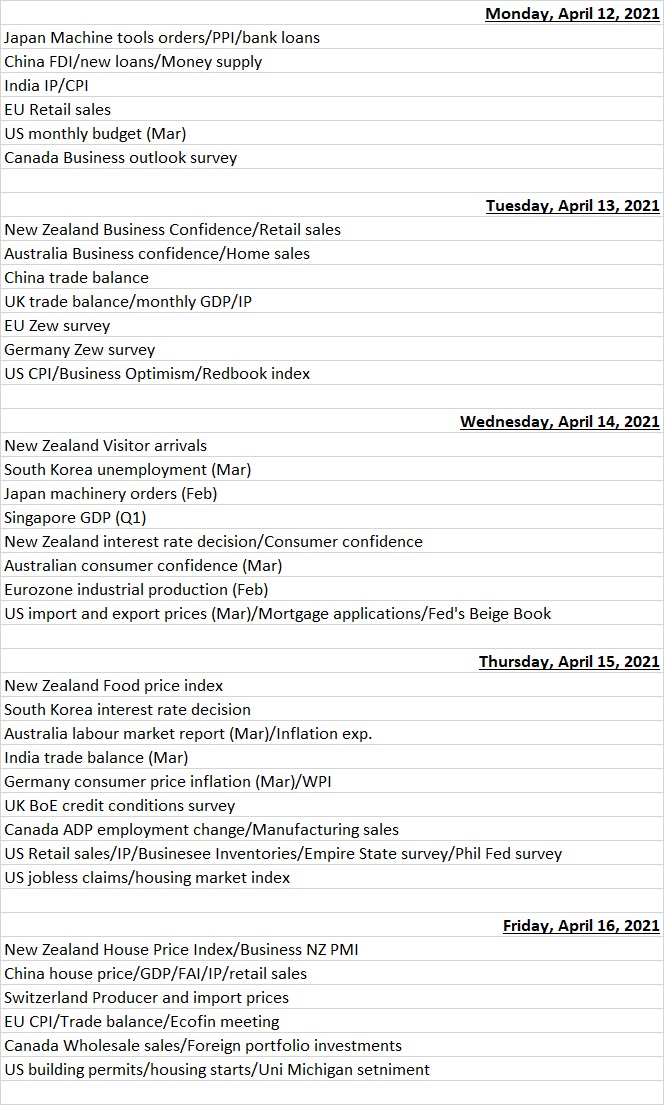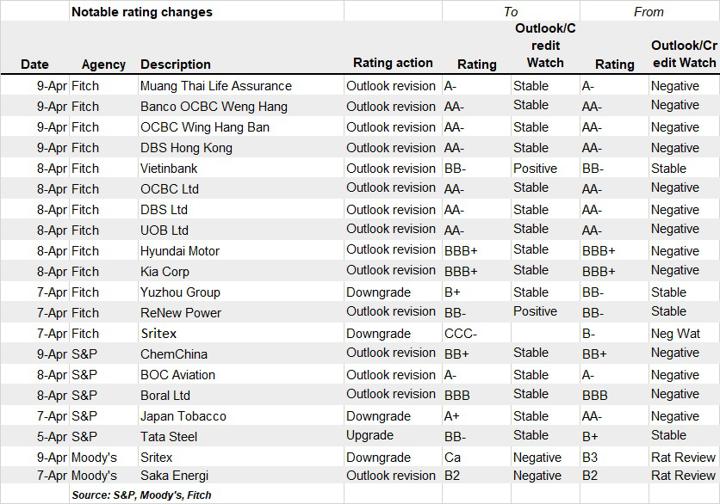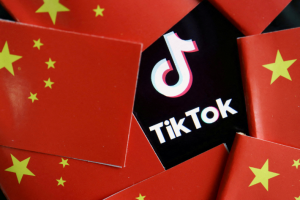(ATF) Economic events
Investors will focus on the corporate results in several markets after a holiday shortened week, looking for clues about the earnings visibility and recovery path. They will also monitor vaccination progress and mobility in various economies as subsequent waves of infections forces lockdowns.
“Mobility data have weakened in many parts of the world in recent weeks as virus numbers either remain high or continue to climb, risking restrictions staying in place for even longer,” said Gabriella Dickens, global economist at Capital Economics. “Meanwhile, as virus cases have resurged, the recovery in overall emerging Asia has levelled off, with mobility in India falling outright over the past few weeks.”
Still, the tone at the open in Asia will be one of optimism after the S&P 500 and the Dow notched record closing highs on Friday after higher US PPI data, although there will be caution as the spectre of inflation continues to haunt investors.
Inflation fears were stoked last week after China reported factory gate prices rose by most in nearly three years as economic recovery quickens.
“As the world’s largest exporter of manufactured goods, higher PPI inflation in China will be inevitably passed to other economies, including the US,” said Ting Lu, Nomura’s chief China economist.
“We expect CPI and PPI inflation to rise further to around 1.2% y-o-y and 5.5%, respectively, in April on another month of low bases, rising services prices and increasing energy and commodity prices. We expect PPI inflation to rise to around 6.0% y-o-y in mid-year and then moderate thereafter, amid potential support from the ongoing environmental campaign. CPI inflation could rise throughout the year to around 2.8% at end-2021.”
The spike in US yields and the economy stoked rise in the dollar is of particular interest to Chinese assets after the yuan logged its worst month in a year in March and China government bonds saw foreign investors lower their holdings last month for the first time in more than two years.
The yuan has now erased all its 2021 gains against the dollar.
Chinese tech giants will be in focus after China’s State Administration for Market Regulation announced it had fined Alibaba Group more than $2.8 billion for abusing its market dominance.
On the economic front, data releases from the world’s second largest economy will be key as China unveils GDP, retail sales and industrial production data.
“Growth could accelerate from 6.8% in the fourth quarter to around 19%, though the pace of expansion will likely cool in the remaining quarters of the year,” said Chris Williamson, chief business economist at IHS Markit.
“China nevertheless continues to show strong economic expansion, due mainly to its success in controlling fresh outbreaks of COVID-19, with our economic forecasting team pencilling-in 7.8% growth for 2021 and a 5.8% expansion in 2022.”
Fund flow
Flows sensitive to growth accelerated in the week to April 7 after the IMF raised its forecast for the global economy and several major economies. The flows received tailwind from the blowout US employment data with the addition of 900,000 jobs in March and after US Federal Reserve officials reiterated their commitment to highly accommodative monetary policy.
Investors also shifted focus from the post-pandemic ‘winners’ to the likely beneficiaries of the stimulus-fueled, US-led rebound, penciled for the second half of the year – Technology sector funds, Real Estate and Infrastructure Funds benefited while Healthcare Sector Funds experienced net redemptions.
Equity Funds absorbed a net $15.5 billion and Bond Funds $16.9 billion during the first week of the new quarter, according to EPFR data.
But Emerging Markets Equity Funds posted their second collective outflow in the past six months amid fears Beijing will start winding up post-pandemic stimulus measures as the world’s second largest economy continued to recover. China Equity Funds posted consecutive weekly outflows for the first time since mid-3Q20.
“Sentiment towards this asset class also took a knock from the IMF’s latest World Economic Outlook, which predicts that collective output among emerging markets will not hit pre-pandemic levels until 2023 even if the pandemic does not take any turns for the worse,” said Cameron Brandt, EPFR’s Director, Research.
But new funds continued to flow into Developed Markets Equity Funds, which have now recorded inflows 23 of the 27 weeks since the start of 4Q20, with most going to Global and US Equity Funds. But investors pulled money out of Europe Equity Funds, the sixth time in the past eight weeks, as France and Italy were locked down and Germany hinted at another nationwide lockdown to contain the pandemic’s current wave.
“As the recovery is taking shape, growth-geared risk pockets – like HY and EM debt funds – have posted strong inflows last week. Amid a low rates vol backdrop, as the rates market has now stabilised, IG funds have also seen healthy inflows over the past week,” said BofA Securities strategists Ioannis Angelakis, Barnaby Martin and Elyas Galou in a note.
“With the recovery set to continue this year, we expect investors to continue adding beta via higher yielding paper, while also favouring lower duration exposures.”
Economic data calendar

Last week’s rating changes

























